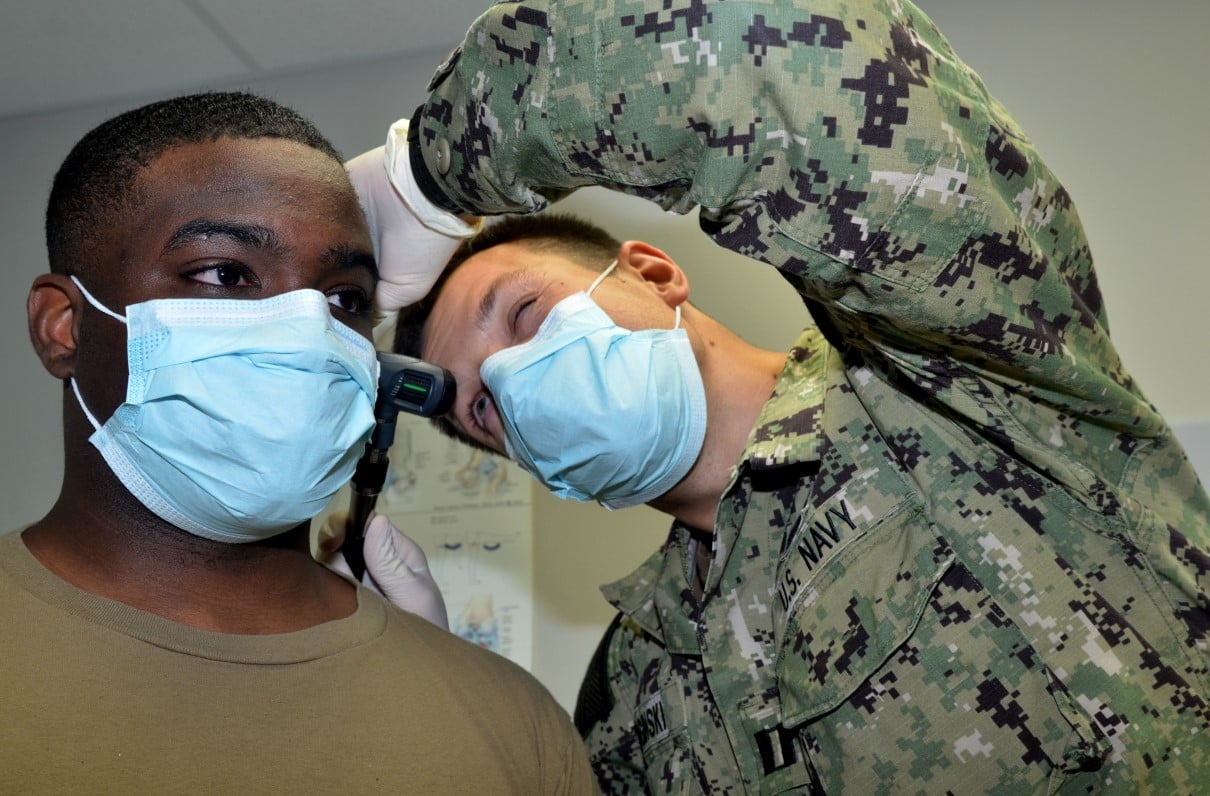DoD plans to stabilize its health care system with better staffing at military treatment facilities (MTFs), a move addressing a long-term MOAA priority to secure access to quality care for servicemembers and their retirees, along with their families and survivors.
The updated strategic plan also calls for bringing TRICARE beneficiaries back from the private sector and into the MTFs – returning at least 7% of available care to those facilities. There are no plans to ask patients to change their plan or their doctor; the goal is to make the MTF the easiest, simplest choice for beneficiaries.
While MOAA is glad to see an emphasis on appropriate staffing levels, we are concerned whether an influx of new patients could worsen existing access-to-care challenges – a concern relayed in recent news reports about the DoD initiative.
[RELATED: Report Highlights Need for MOAA’s Work to Preserve Health Care Access]
The voluntary nature of the effort is a welcome change from past “recapture” efforts which forced TRICARE beneficiaries into care changes, but potential trouble spots remain that could weaken the overall TRICARE benefit:
- The new staffing approach for MTFs is still unproven, and streamlining the civilian hiring process will not be a quick fix.
- Patients may be brought back to understaffed military medical facilities too quickly. MOAA will be monitoring beneficiary feedback closely for access-to-care issues or other areas of dissatisfaction.
- Transparency regarding access problems remains an issue, and could be worsened during this transition. MOAA continues to advocate for a digital problem reporting system for access-to-care issues similar to the Patient Advocate Tracker Act, signed into law in 2022, that requires the VA to create an online portal where veteran patients can track the status of their complaints.
[RELATED: TRICARE, Star Act, Arlington Eligibility Among MOAA’s FY 2025 NDAA Priorities]
Plan Details
DoD has acknowledged numerous challenges across the military health system (MHS), including an insufficient MTF caseload to maintain and improve medical readiness, increasing costs, and ongoing access-to-care issues.
Several factors have contributed to understaffed military hospitals and clinics with reduced patient capacity, including the transition of MTFs to Defense Health Agency (DHA) administration and management. This move resulted in a realignment of uniformed medical personnel; a shrinking civilian health care workforce has made MTF hiring challenges even more pronounced.
The plan includes a comprehensive review of all medical manpower to increase capacity and access while improving readiness capabilities. Military medical forces will be assigned primarily to MTFs while new authorities will improve recruitment and retention of civilian employees.
Active duty servicemembers and their families, with top priority for MTF care in statute, likely will be the initial targets for returning to MTFs, although it sounds like there will also be outreach to retirees (including Medicare-eligible retirees on TRICARE For Life) to increase the volume of complex cases. Feedback from MOAA members suggests many retirees and their families may be eager to return to MTFs, a move which would offer lower costs and a return to the familiarity of military hospitals and clinics.
[MEMBER EXCLUSIVE: Transitioning Into Medicare and TRICARE For Life]
Ensuring Access
This complicated realignment of resources won’t come without its challenges, and military families deserve the chance to change their TRICARE coverage plan to address access issues.
MOAA is asking DoD and Congress for greater flexibility with TRICARE plan enrollment, allowing military patients to seek care where appointments are available – at MTFs, in the TRICARE networks, or with the US Family Health Plan (where available).
Current TRICARE policy limits plan changes (from Prime to Select or vice versa) to open season or in connection with a qualifying life event (QLE). We seek a five-year pilot that would expand QLEs to include dissatisfaction with access to allow military families maximum flexibility in seeking care where its available, as well as the addition of pregnancy as a QLE.
Please visit MOAA’s Advocacy News page for updates on this issue and other TRICARE and MHS information.
Have More Questions About Your Health Care Benefit?
MOAA's TRICARE Guide answers some commonly asked questions.

